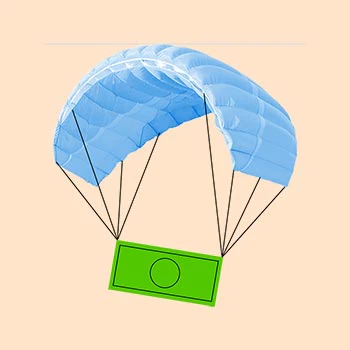Quick Tips for Good Credit
Simple, actionable strategies you can implement today to build and maintain excellent credit. Focus on what matters most for the biggest impact.
Quick Start Guide: These tips are ranked by impact and ease of implementation. Start with the high-impact actions you can do immediately, then work on the longer-term strategies for sustained credit health.
1Always Pay On Time Highest Impact
Payment history is 35% of your credit score—the single most important factor.
Quick Action:
Set up automatic payments for at least the minimum amount on all credit accounts. Even one late payment can drop your score by 60-100 points.
- Set up autopay for all credit cards and loans
- Pay at least 2-3 days before the due date
- Set phone or calendar reminders as backup
- If you miss a payment, pay immediately—the damage increases after 30 days
2Keep Credit Utilization Low Highest Impact
Credit utilization is 30% of your score. Keep balances below 30% of credit limits, ideally under 10%.
Quick Action:
Pay down credit card balances before your statement closing date. The balance reported to credit bureaus is usually your statement balance, not your current balance.
- Aim for under 10% utilization on each card
- Pay balances multiple times per month
- Request credit limit increases to lower utilization
- Consider spreading balances across multiple cards if needed
3Monitor Your Credit Regularly Medium Impact
Regular monitoring helps you catch errors and fraud quickly, and tracking progress keeps you motivated.
Quick Action:
Sign up for free credit monitoring through your bank, credit card company, or CreditVana. Check your full credit reports annually at annualcreditreport.com.
- Check your credit score monthly
- Review full credit reports annually from all three bureaus
- Dispute any errors immediately
- Set up alerts for significant score changes
4Keep Old Accounts Open Medium Impact
Length of credit history is 15% of your score. Older accounts boost your average account age.
Quick Action:
Before closing any credit card, consider keeping it open with no balance. Use it occasionally for small purchases to keep it active.
- Keep your oldest credit card open
- Use old cards occasionally to prevent closure
- Don't close cards just because you don't use them
- Only close cards with high annual fees if you have other options
5Be Strategic About New Credit Lower Impact
New credit inquiries are 10% of your score, but multiple inquiries in short periods can add up.
Quick Action:
Only apply for credit when you need it. Shop for rates within a 14-45 day window for mortgages or auto loans—multiple inquiries in this period count as one.
- Space out credit applications by at least 3-6 months
- Pre-qualify when possible to avoid hard inquiries
- Focus on building relationships with existing lenders
- Don't apply for credit right before major purchases like homes
6Avoid These Common Mistakes
✓ DO
- Pay full balances monthly
- Keep utilization under 10%
- Pay bills on time, every time
- Monitor credit regularly
- Keep old accounts open
- Dispute errors promptly
✗ DON'T
- Make only minimum payments
- Max out credit cards
- Miss payment due dates
- Ignore your credit reports
- Close old credit accounts
- Apply for multiple cards quickly
Quick Credit Building Timeline
Set up autopay, check current credit utilization, sign up for credit monitoring
Pay down high balances, dispute any errors on credit reports, review all account due dates
Establish consistent payment patterns, request credit limit increases if needed
See improvements from consistent good habits, consider adding authorized user accounts
Achieve significant score improvements, qualify for better rates and terms
Emergency Credit Fixes
If you need to improve your credit quickly for a major purchase:
- Pay down balances immediately: Can show improvement in 1-2 months
- Request credit limit increases: Instantly lowers utilization ratios
- Become an authorized user: Can boost score within 30-60 days
- Dispute errors aggressively: Corrections can happen in 30 days
- Pay twice monthly: Keep reported balances as low as possible
Credit Score Ranges Quick Reference
- 800-850: Excellent—Best rates available
- 740-799: Very Good—Great rates and terms
- 670-739: Good—Decent rates, most approvals
- 580-669: Fair—Higher rates, limited options
- 300-579: Poor—Difficulty getting approved
Goal: Aim for 740+ to unlock the best rates and terms on loans and credit cards.
Remember: Building good credit is a marathon, not a sprint. Focus on developing sustainable habits rather than trying to game the system. Consistent positive behaviors over time will always win over quick fixes.
Start Building Better Credit Today
Need personalized guidance for your credit situation? CreditVana provides detailed credit analysis, monitoring, and customized improvement strategies to help you achieve your credit goals faster.
Important information: Credit building requires time and consistent positive financial behavior. Individual results may vary based on starting credit profile and adherence to recommended strategies. The tips provided are general guidelines—consider your specific financial situation when implementing credit building strategies.
© 2025 CreditVana LLC. All rights reserved.








